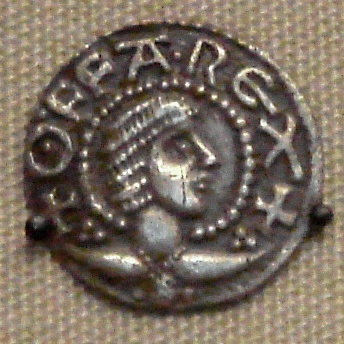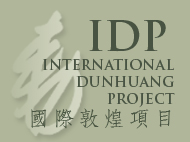|
F.W. Thomas
Frederick William Thomas (21 March 1867 – 6 May 1956), usually cited as F. W. Thomas, was an English Indologist and Tibetologist. Life Thomas was born on 21 March 1867 in Tamworth, Staffordshire. After schooling at King Edward's School, Birmingham, he went up to Trinity College, Cambridge in 1885, graduating with a first class degree in both classics and Indian languages and being awarded a Browne medal in both 1888 and 1889. At Cambridge he studied Sanskrit under the influential Orientalist Edward Byles Cowell. He was a librarian at the India Office Library (now subsumed into the British Library) between 1898 and 1927. Simultaneously he was lecturer in comparative philology at University College, London from 1908 to 1935, Reader in Tibetan at London University from 1909 to 1937 and the Boden Professor of Sanskrit at Oxford University between 1927 and 1937, in which capacity he became a fellow of Balliol College. His students at Oxford included Harold Walter Bailey. Thomas ... [...More Info...] [...Related Items...] OR: [Wikipedia] [Google] [Baidu] |
Tamworth, Staffordshire
Tamworth (, ) is a market town and borough in Staffordshire, England, north-east of Birmingham. The town borders North Warwickshire to the east and north, Lichfield to the north, south-west and west. The town takes its name from the River Tame, which flows through it. The population of Tamworth borough () was . The wider urban area had a population of 81,964. Tamworth was the principal centre of royal power of the Anglo-Saxon Kingdom of Mercia during the 8th and 9th centuries. It hosts a simple but elevated 12th century castle, a well-preserved medieval church (the Church of St Editha) and a Moat House. Tamworth was historically divided between Warwickshire and Staffordshire until 1889, when the town was placed entirely in Staffordshire. The town's industries include logistics, engineering, clothing, brick, tile and paper manufacture. Until 2001 one of its factories was Reliant, which produced the Reliant Robin three-wheeler car and the Reliant Scimitar sports car. The ... [...More Info...] [...Related Items...] OR: [Wikipedia] [Google] [Baidu] |
Fellow Of The British Academy
Fellowship of the British Academy (FBA) is an award granted by the British Academy to leading academics for their distinction in the humanities and social sciences. The categories are: # Fellows – scholars resident in the United Kingdom # Corresponding Fellows – scholars resident overseas # Honorary Fellows – an honorary academic title The award of fellowship is based on published work and fellows may use the post-nominal letters ''FBA''. Examples of Fellows are Edward Rand, Mary Beard; Nicholas Stern, Baron Stern of Brentford; Michael Lobban; M. R. James; Friedrich Hayek; Lord Keynes; and Rowan Williams. See also * List of fellows of the British Academy References British Academy The British Academy is the United Kingdom's national academy for the humanities and the social sciences. It was established in 1902 and received its royal charter in the same year. It is now a fellowship of more than 1,000 leading scholars spa ... British Academy ... [...More Info...] [...Related Items...] OR: [Wikipedia] [Google] [Baidu] |
People Educated At King Edward's School, Birmingham
A person ( : people) is a being that has certain capacities or attributes such as reason, morality, consciousness or self-consciousness, and being a part of a culturally established form of social relations such as kinship, ownership of property, or legal responsibility. The defining features of personhood and, consequently, what makes a person count as a person, differ widely among cultures and contexts. In addition to the question of personhood, of what makes a being count as a person to begin with, there are further questions about personal identity and self: both about what makes any particular person that particular person instead of another, and about what makes a person at one time the same person as they were or will be at another time despite any intervening changes. The plural form "people" is often used to refer to an entire nation or ethnic group (as in "a people"), and this was the original meaning of the word; it subsequently acquired its use as a plural form of per ... [...More Info...] [...Related Items...] OR: [Wikipedia] [Google] [Baidu] |
Boden Professors Of Sanskrit
Boden may refer to: Places *Boden Municipality in Sweden *Boden, Sweden, a city and the seat of Boden Municipality * Boden, Germany, a municipality in the district Westerwaldkreis, in Rhineland-Palatinate, Germany * Boden, Illinois, an unincorporated community * Boden, Ohio, an unincorporated community Other uses * Boden (surname) *Boden (clothing), a clothing retailer * Boden Scholarship, established in 1833 at the University of Oxford for students learning Sanskrit *Norrland Engineer Battalion The Norrland Engineer Battalion ( sv, Norrlands ingenjörbataljon), designation Ingbat/I 19, originally Boden Engineer Regiment ( sv, Bodens ingenjörkår), designation Ing 3, was a Swedish Army engineer unit, one of the few new formations raised ... (Boden Engineer Regiment), a Swedish Army unit from 1905 to 2005 See also * Boden's Mate, a mating pattern in chess, discovered by Samuel Boden {{DEFAULTSORT:Boden ... [...More Info...] [...Related Items...] OR: [Wikipedia] [Google] [Baidu] |
Fellows Of Balliol College, Oxford
{{disambiguation ...
Fellows may refer to Fellow, in plural form. Fellows or Fellowes may also refer to: Places *Fellows, California, USA *Fellows, Wisconsin, ghost town, USA Other uses *Fellows Auctioneers, established in 1876. *Fellowes, Inc., manufacturer of workspace products *Fellows, a partner in the firm of English canal carriers, Fellows Morton & Clayton *Fellows (surname) See also *North Fellows Historic District, listed on the National Register of Historic Places in Wapello County, Iowa *Justice Fellows (other) Justice Fellows may refer to: * Grant Fellows (1865–1929), associate justice of the Michigan Supreme Court * Raymond Fellows (1885–1957), associate justice of the Maine Supreme Judicial Court {{disambiguation, tndis ... [...More Info...] [...Related Items...] OR: [Wikipedia] [Google] [Baidu] |
1956 Deaths
Events January * January 1 – The Anglo-Egyptian Sudan, Anglo-Egyptian Condominium ends in Sudan. * January 8 – Operation Auca: Five U.S. evangelical Christian Missionary, missionaries, Nate Saint, Roger Youderian, Ed McCully, Jim Elliot and Pete Fleming, are killed for trespassing by the Huaorani people of Ecuador, shortly after making contact with them. * January 16 – Egyptian leader Gamal Abdel Nasser vows to reconquer Palestine (region), Palestine. * January 25–January 26, 26 – Finnish troops reoccupy Porkkala, after Soviet Union, Soviet troops vacate its military base. Civilians can return February 4. * January 26 – The 1956 Winter Olympics open in Cortina d'Ampezzo, Italy. February * February 11 – British Espionage, spies Guy Burgess and Donald Maclean (spy), Donald Maclean resurface in the Soviet Union, after being missing for 5 years. * February 14–February 25, 25 – The 20th Congress of the Communist Party of the Soviet Union is held in Mosc ... [...More Info...] [...Related Items...] OR: [Wikipedia] [Google] [Baidu] |
1867 Births
Events January–March * January 1 – The Covington–Cincinnati Suspension Bridge opens between Cincinnati, Ohio, and Covington, Kentucky, in the United States, becoming the longest single-span bridge in the world. It was renamed after its designer, John A. Roebling, in 1983. * January 8 – African-American men are granted the right to vote in the District of Columbia. * January 11 – Benito Juárez becomes Mexican president again. * January 30 – Emperor Kōmei of Japan dies suddenly, age 36, leaving his 14-year-old son to succeed as Emperor Meiji. * January 31 – Maronite nationalist leader Youssef Bey Karam leaves Lebanon aboard a French ship for Algeria. * February 3 – ''Shōgun'' Tokugawa Yoshinobu abdicates, and the late Emperor Kōmei's son, Prince Mutsuhito, becomes Emperor Meiji of Japan in a brief ceremony in Kyoto, ending the Late Tokugawa shogunate. * February 7 – West Virginia University is established in Morgantown, West Virginia. * Febru ... [...More Info...] [...Related Items...] OR: [Wikipedia] [Google] [Baidu] |
English Orientalists
English usually refers to: * English language * English people English may also refer to: Peoples, culture, and language * ''English'', an adjective for something of, from, or related to England ** English national identity, an identity and common culture ** English language in England, a variant of the English language spoken in England * English languages (other) * English studies, the study of English language and literature * ''English'', an Amish term for non-Amish, regardless of ethnicity Individuals * English (surname), a list of notable people with the surname ''English'' * People with the given name ** English McConnell (1882–1928), Irish footballer ** English Fisher (1928–2011), American boxing coach ** English Gardner (b. 1992), American track and field sprinter Places United States * English, Indiana, a town * English, Kentucky, an unincorporated community * English, Brazoria County, Texas, an unincorporated community * Engl ... [...More Info...] [...Related Items...] OR: [Wikipedia] [Google] [Baidu] |
Sten Konow
Sten Konow. Sten Konow (17 April 1867 – 29 June 1948) was a Norwegian Indologist. He was professor of Indic philology at the Christiania University, Oslo, from 1910, moving to Hamburg University in 1914, where he was professor for Indian history and culture. He returned to Oslo as professor for Indian languages and history in 1919. He was a specialist on the Tibeto-Burmese languages. Konow was born in Sør-Aurdal in Oppland where his father Wollert Otto Konow (1833–95) was a parish priest married to Henrikka Christiane Johanne Molde Wolff (1841–1927). Konow studied art, graduating from Lillehammer in 1884. He then studied in Kristiania before movingt to Halle and worked in the Oslo University library for some time. In 1890 he collated a Norwegian lexicon. He returned to studies in Indian philology at the University of Halle under Richard Pischel and received a doctorate in 1893 with studies on the Sāmavidhānabrāhmana. He worked in Berlin from 1894 to 1896 and returne ... [...More Info...] [...Related Items...] OR: [Wikipedia] [Google] [Baidu] |
International Dunhuang Project
The International Dunhuang Project (IDP) is an international collaborative effort to conserve, catalogue and digitise manuscripts, printed texts, paintings, textiles and artefacts from the Mogao caves at the Western Chinese city of Dunhuang and various other archaeological sites at the eastern end of the Silk Road. The project was established by the British Library in 1994, and now includes twenty-two institutions in twelve countries. the online IDP database comprised 143,290 catalogue entries and 538,821 images. Most of the manuscripts in the IDP database are texts written in Chinese, but more than fifteen different scripts and languages are represented, including Brahmi, Kharosthi, Khotanese, Sanskrit, Tangut, Tibetan, Tocharian and Old Uyghur. Victor H. Mair, Professor of Chinese Language and Literature at the University of Pennsylvania, has noted that there are many advantages of the IDP providing high resolution digital images of Dunhuang manuscripts online for access ... [...More Info...] [...Related Items...] OR: [Wikipedia] [Google] [Baidu] |
Marc Aurel Stein
Sir Marc Aurel Stein, ( hu, Stein Márk Aurél; 26 November 1862 – 26 October 1943) was a Hungarian-born British archaeologist, primarily known for his explorations and archaeological discoveries in Central Asia. He was also a professor at Indian universities. Stein was also an ethnographer, geographer, linguist and surveyor. His collection of books and manuscripts bought from Dunhuang caves is important for the study of the history of Central Asia and the art and literature of Buddhism. He wrote several volumes on his expeditions and discoveries which include ''Ancient Khotan'', ''Serindia'' and ''Innermost Asia''. Early life Stein was born to Náthán Stein and Anna Hirschler, a Jewish couple residing in Budapest in the Kingdom of Hungary. His parents and his sister retained their Jewish faith but Stein and his brother, Ernst Eduard, were baptised as Lutherans. At home the family spoke German and Hungarian, Stein attended Catholic and Lutheran gymnasiums in Budapest, wh ... [...More Info...] [...Related Items...] OR: [Wikipedia] [Google] [Baidu] |

_1938.jpg)




